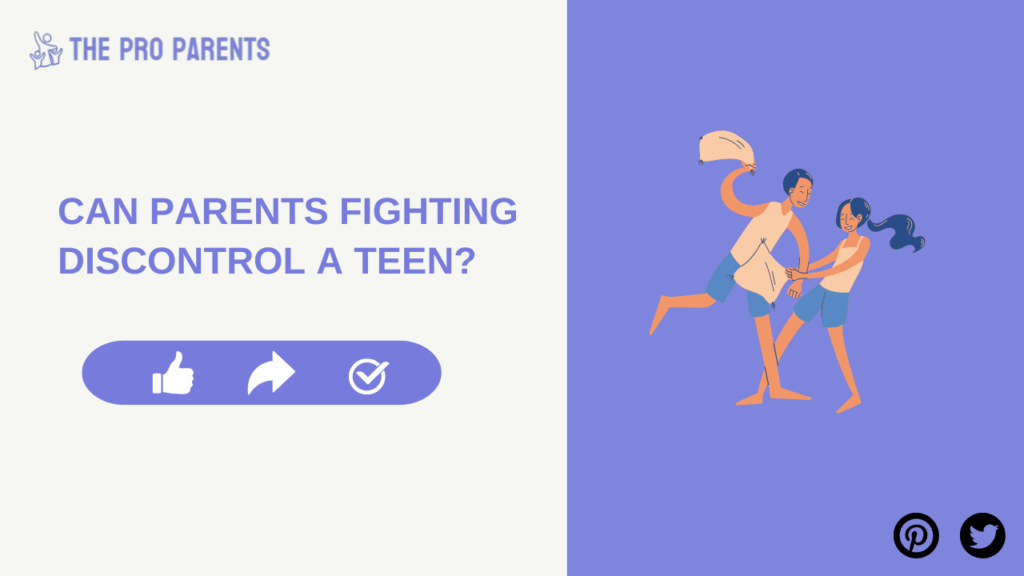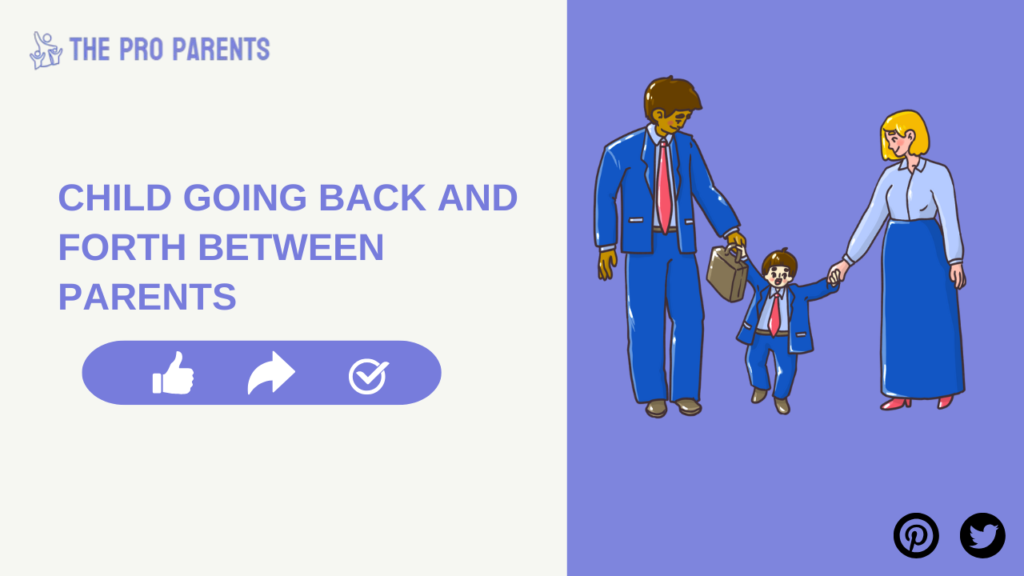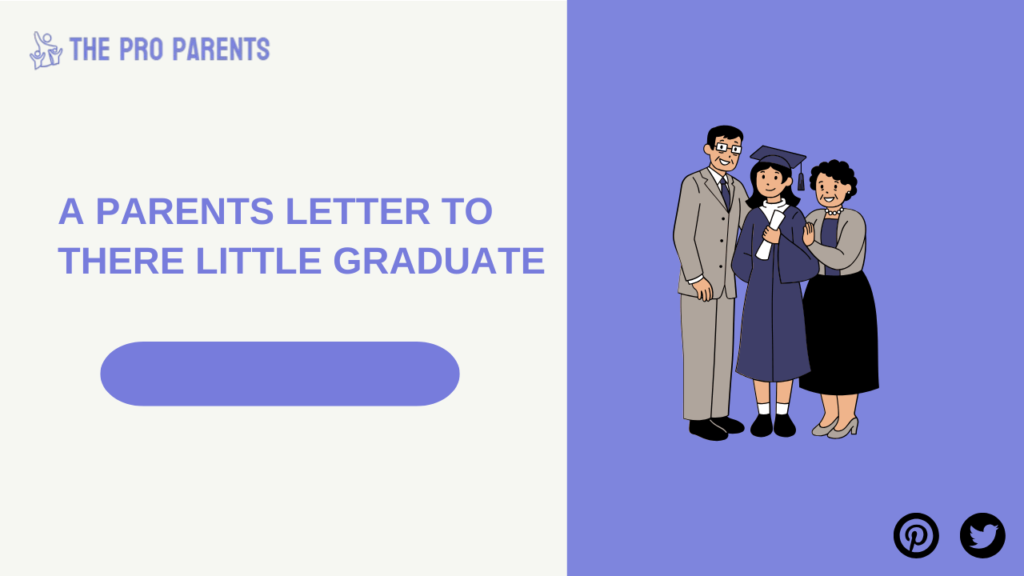Table of Contents
Parental conflict is an all-too-common experience in many households. But have you stopped to wonder what kind of impact it might have on your teenager? Can parents fighting truly discontrol a teen? The answer, unfortunately, is yes. Constant exposure to arguments, tension, and unresolved conflict can leave emotional and psychological scars that shape a teenager’s behavior, mood, and future relationships.
This blog explores the profound effects of parental conflict on teens. We’ll uncover the psychological and emotional toll it can take, identify behaviors that may signal a teen is struggling, and offer actionable strategies for parents to support their children through such challenges. We’ve also included expert insights from child psychologists to ensure factual, well-rounded advice.
By the end, you’ll understand not only why minimizing conflict matters but also how to create a stable, nurturing environment that fosters your teen’s growth and emotional well-being.
The Psychological Effects of Parents Fighting on Teens
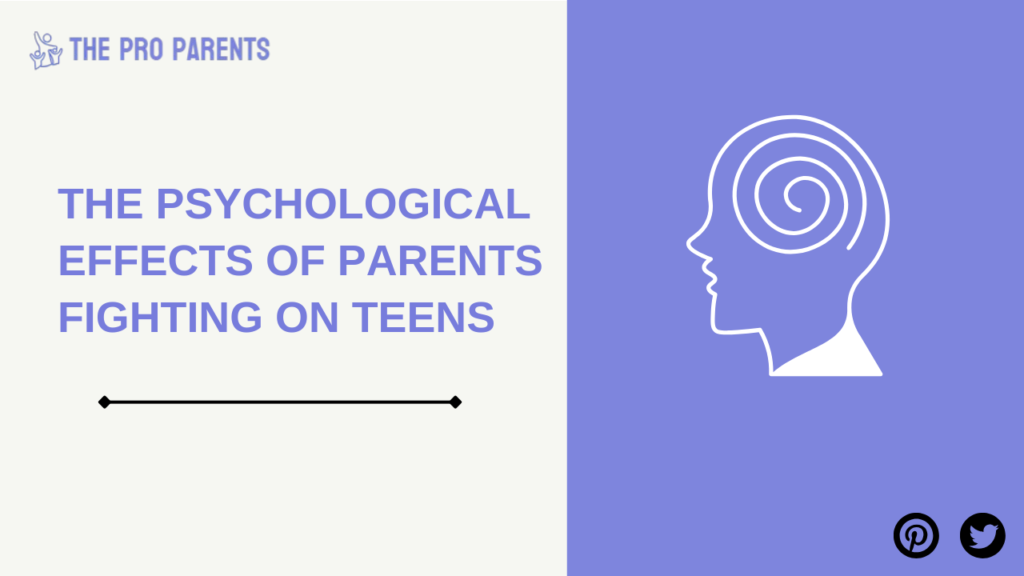
Parental conflict doesn’t just vanish once the shouting stops; its effects linger, sometimes taking root in a teen’s psyche. Understanding these effects is crucial in managing your family’s well-being.
Anxiety and Stress
Teens often experience heightened stress when parents frequently argue. They may internalize the conflict, fearing that their family unit might fall apart. Research shows that constant stress can lead to sleep issues, poor academic performance, and even physical health problems.
Low Self-Esteem
When parents fight, teens may question their worth or wonder if they are to blame for the discord. This can severely impact their self-esteem and leave them feeling powerless.
Difficulty Trusting Relationships
Exposure to arguments at home can skew a teen’s perception of relationships. They may struggle to trust others or form healthy bonds, fearing betrayal or recurring conflict.
Seeking Support: Why Open Communication Matters
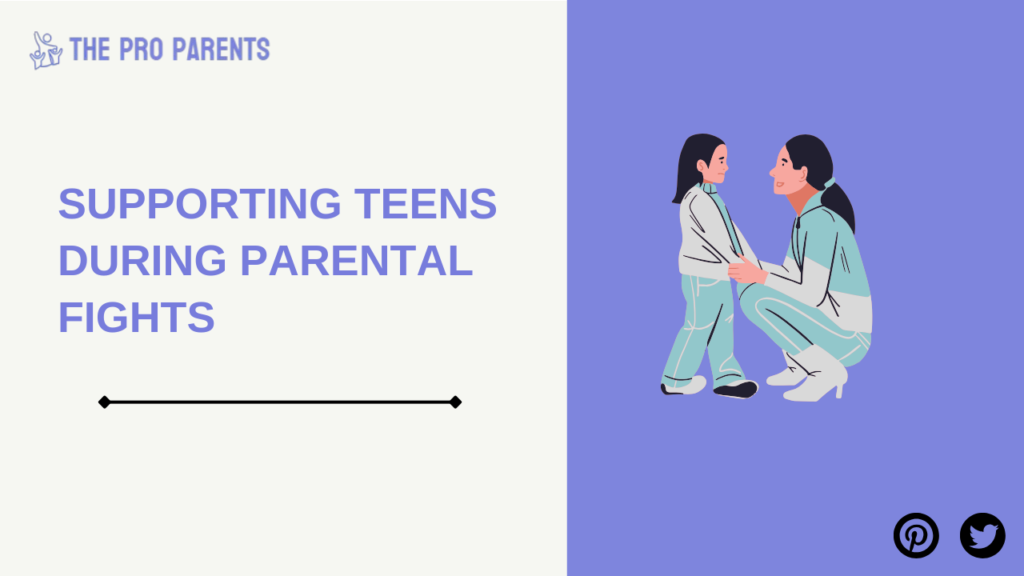
Communication is key when it comes to addressing the effects of parents fighting on teen behavior. Creating a safe and open environment for teens to express their feelings and concerns can make a significant difference. Let’s explore some strategies and resources that can help parents and teens navigate these challenging circumstances with empathy and understanding.
The “parents fighting effects on teen behavior” is multifaceted. Beyond emotional stress, behavioral changes often manifest as warning signals. From acting out at school to withdrawing from friends, these behaviors underscore the need for immediate attention.
Can Parents Fight Lead to Loss of Control in Teens?
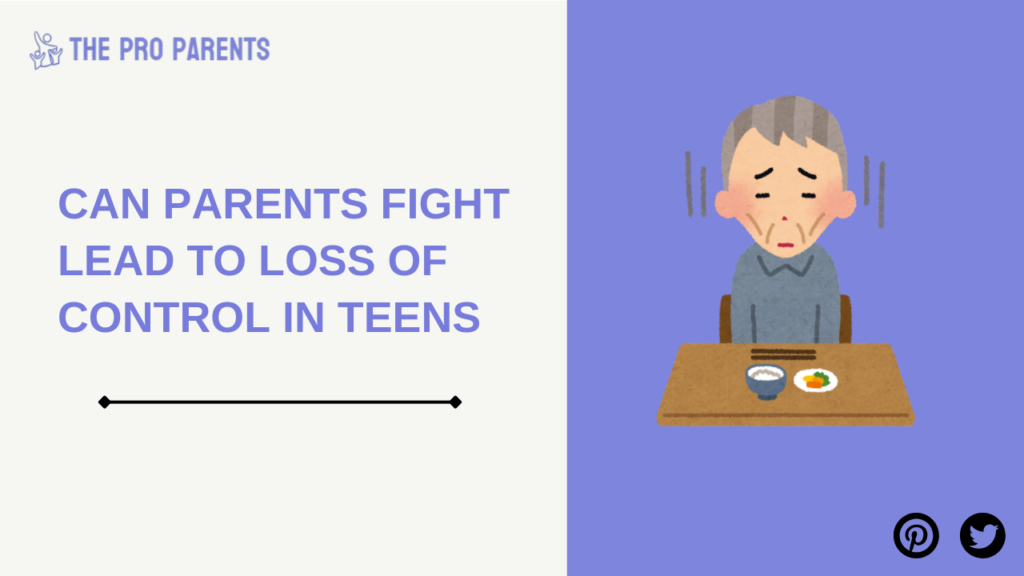
Yes, it can. Emotional and behavioral responses to parental fighting often spiral into instability for teens grappling with the chaos around them.
Emotional Instability
When exposed to frequent conflict, teens may struggle to regulate their emotions. They might display mood swings, anger outbursts, or frequent crying due to pent-up frustration or sadness.
Risk-Taking Behaviors
Conflict can push teens toward engaging in risky behaviors, such as substance abuse or reckless decision-making, as a misguided attempt to cope.
Strained Parent-Teen Relationship
Teens who feel alienated by their parents’ arguments may lose respect or trust in their caregivers, leading to a breakdown in communication.
Addressing “teen emotional instability due to parents fighting” begins with acknowledging its existence and seeking ways to restore peace within the household.
Long-Term Effects of Parents Fighting on Teen Behavior
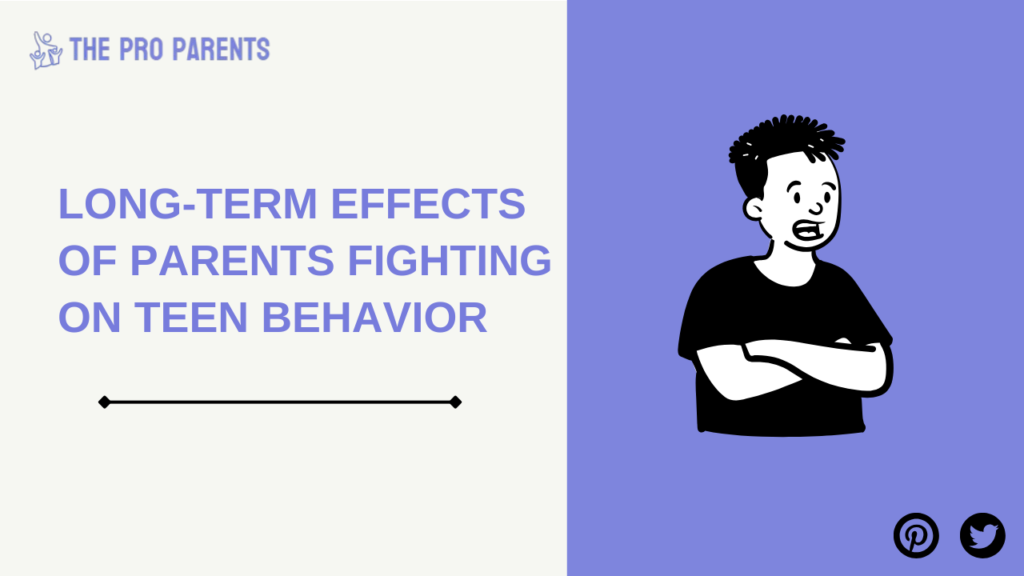
The scars of parental conflict can extend well beyond adolescence, shaping how teenagers grow into adults. Here are the long-term impacts to consider:
Struggles with Future Relationships
Teens exposed to conflict often carry those experiences forward, finding it difficult to handle disagreements or vulnerabilities in their own relationships.
Mental Health Challenges
Long-term exposure to unresolved conflict may lead to chronic anxiety, depression, or even post-traumatic stress disorder (PTSD) in adulthood.
Career and Academic Implications
Unaddressed trauma can manifest in poor academic performance, lack of motivation, or difficulty maintaining professional relationships in the future.
The “long-term effects of parents fighting on children” highlight the importance of addressing conflict early. Teens deserve the opportunity to build lives free from the lingering shadows of parental discord.
Signs That a Teen Is Losing Control Due to Parents Fighting
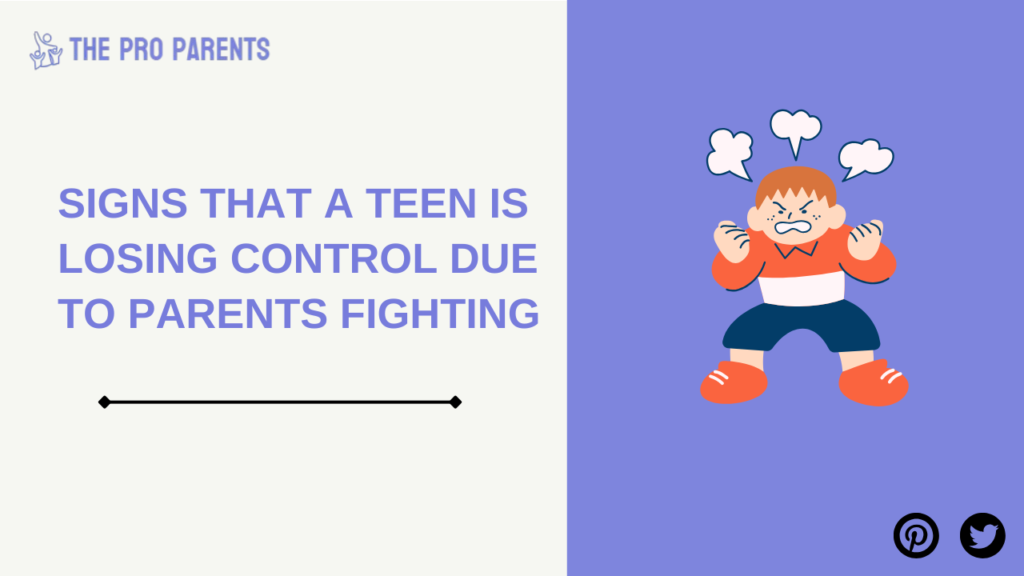
Not sure if your teenager is being affected? Here are key warning signs that they might be struggling:
- Withdrawal: They stop engaging with family or friends.
- Academic Decline: A noticeable drop in grades or disinterest in school activities.
- Substance Use: Experimentation with alcohol, drugs, or other substances.
- Frequent Anger Outbursts: Unexplainable episodes of anger or frustration.
- Depressive Symptoms: Persistent sadness, feelings of hopelessness, or lack of energy.
- Physical Complaints: Frequent headaches or stomachaches with no medical explanation.
Recognizing these “signs of a troubled teen due to parents fighting” is the first step in offering meaningful support.
How to Support a Teen Struggling with Parental Conflict
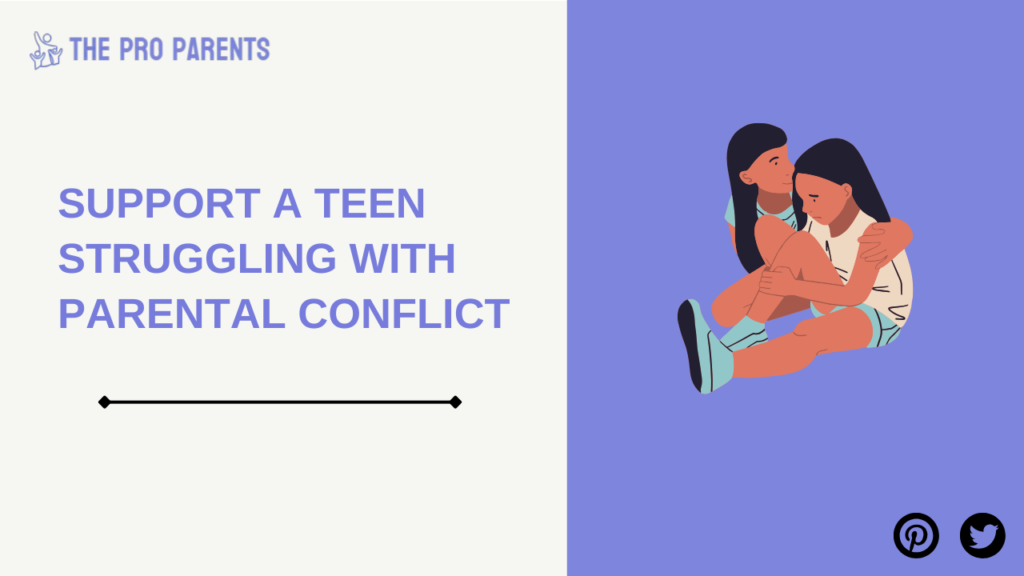
Your teen’s well-being depends on how you handle the situation. Here’s how you can help:
- Acknowledge Their Feelings
Create a safe space for your teen to share their thoughts without judgment.
- Provide Reassurance
Make it clear that the conflict is not their fault and that they are loved and valued.
- Model Healthy Communication
Work toward resolving conflicts calmly and respectfully. Your actions set a powerful example.
- Encourage Healthy Coping Mechanisms
Suggest journaling, exercise, or creative hobbies as outlets for their emotions.
- Keep Lines of Communication Open
Make it known that they can always talk to you about how they’re feeling.
Helping teens cope with parents’ fighting is a gradual process, but with effort and understanding, positive change is possible.
Seeking Professional Help for Teens Affected by Parents Fighting
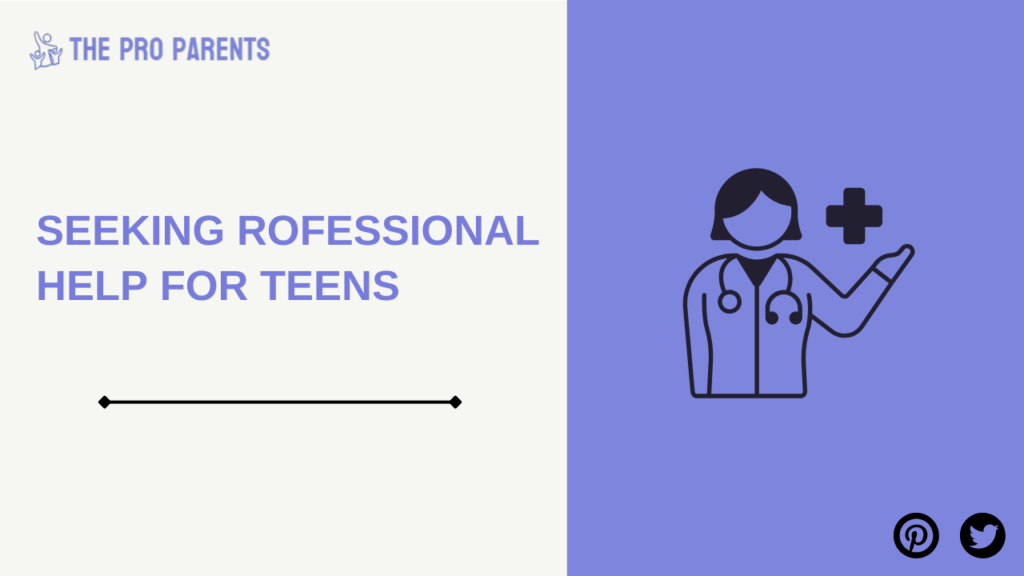
Sometimes, help from professionals can make all the difference. Therapy provides teens with the tools to process their emotions and develop strategies for coping.
Benefits of Therapy
- Safe Environment
Teens can express themselves without fear of judgment.
- Expert Guidance
Therapists can provide actionable advice tailored to their unique needs.
- Restoration of Balance
Therapy offers a chance for the entire family to work toward healthier dynamics.
“I’ve often seen teens flourish after just a few sessions of therapy. It’s remarkable how their confidence, self-awareness, and relationships improve,” notes child psychologist Dr. Sarah Johnson.
Consider therapy for teens affected by parents fighting as a vital step in reclaiming their emotional well-being.
How Can Parents Prevent Losing Control of Their Teen in the First Place?
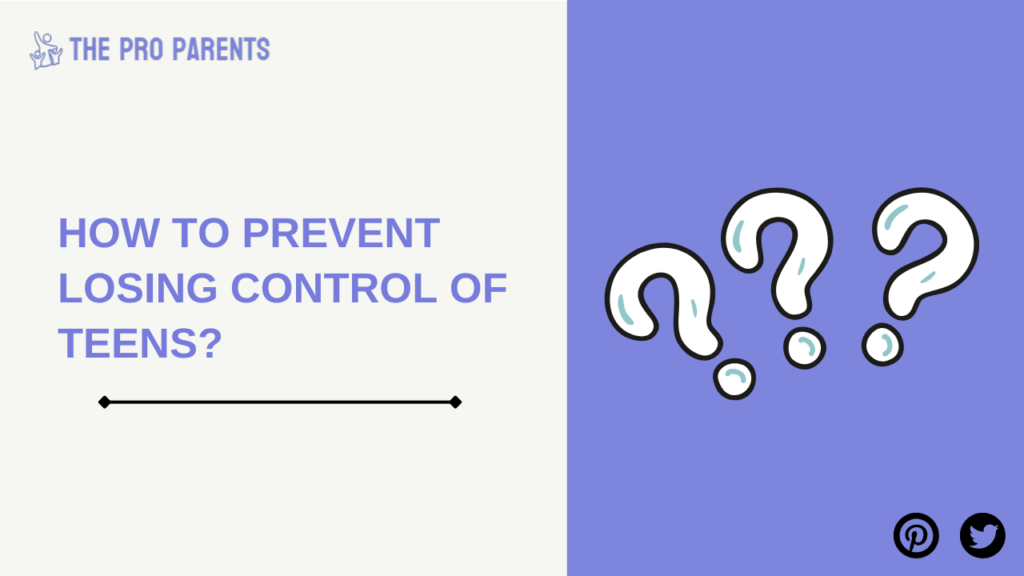
Prevention is always better than cure. Here’s how to maintain a stable and supportive environment for your teenager:
- Focus on Conflict Resolution
Learn constructive communication techniques and avoid fighting in front of your teen.
- Prioritize Family Time
Strong family bonds can minimize the effects of occasional disagreements.
- Stay Emotionally Available
Make your teen feel heard and understood, no matter how busy life gets.
- Seek Mediation if Needed
If conflicts persist, consider professional mediation to minimize their emotional impact.
Understanding “how to manage parental conflict for teen stability” is critical to nurturing a calm, healthy atmosphere.
A Path Toward Harmony
Parental conflict may be unavoidable at times, but its impact on teens doesn’t have to be destructive. By recognizing the signs, seeking professional help, and taking proactive steps, parents can create a more harmonious environment where their teenagers can thrive.
What is your next step? Share this post with someone it might help, and subscribe to The Pro Parents Newsletter for more expert advice and resources.
FAQs
How to Deal with Toxic Parents as a Teenager?
Teens should focus on self-care by relaxing, managing stress, and engaging in activities that promote happiness and health. They should also seek support from trusted adults or mental health professionals.
What Can I Do if My 15-Year-Old Refuses to Come home?
Communicate openly with loved ones to create a safe space for expressing thoughts and feelings. Consider family counseling to address issues and strengthen relationships for better family dynamics.
How to Outsmart Your Parents in an Argument?
Instead of outsmarting others, express your feelings calmly and respectfully. Understand your emotions and communicate clearly, fostering honest dialogue for healthier relationships and better understanding.
What Should a Teenager Do When Their Parents Are Fighting?
Likely, finding a safe space to express your emotions—whether through journaling, talking to a trusted friend, or seeking professional support—can definitely help. Exactly this kind of healthy processing allows you to better understand yourself and navigate challenges more effectively.
How Do I Deal When My Parents Fight?
Definitely prioritize self-care by focusing on your physical and emotional well-being through exercise, mindfulness, or hobbies. If overwhelmed, seek support from trusted adults or mental health professionals.
